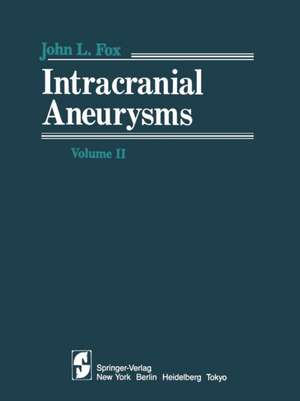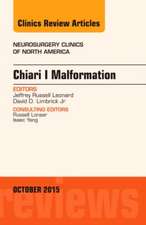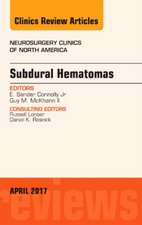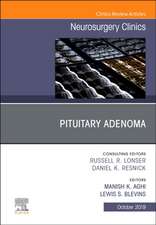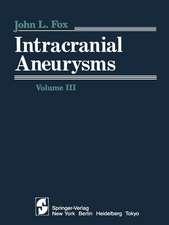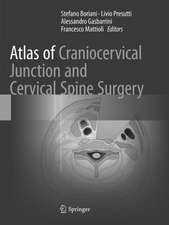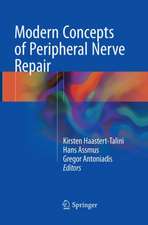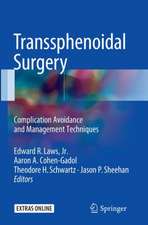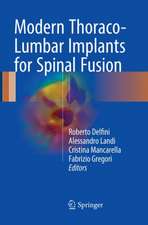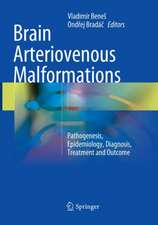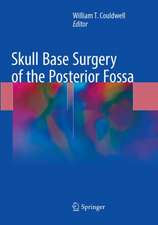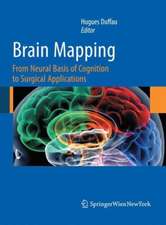Intracranial Aneurysms Volume 2
Editat de J. L. Foxen Limba Engleză Paperback – 10 ian 2012
In his Preface, Dr. Fox has quoted Cannon Professor Fox has undertaken the monumental task of compiling the available data on intracra and Rosenblueth in questioning where to stop nial arterial aneurysms. The magnitude and ex the record. One can only document progress tent of the undertaking attest to the tremen to date-and certainly the advances in this field dous amount of information which has are noteworthy-and then make some cau accumulated in the past few decades and to tious predictions for the future. They have cor the accelerated pace at which the field has ex rectly made note that the overall morbidity panded, particularly since the end of World and mortality of these aneurysm patients re War II. mains unacceptably high, largely as a result of Our heritage can be traced to many sources, the secondary complications of the subarach among whom should be mentioned such nota noid hemorrhage itself. More attention should bles as Willis, Quincke, Blackall, Moniz, Dott, be directed in the future to the recognition of Dandy, Hounsfield, and others. The modern era those patients with unruptured aneurysms and includes a number of investigators and clini those with minimal bleeds. Hopefully infor cians, some of whom have contributed to this mation will be forthcoming as to which indi magnificent tome. The bibliography of over viduals are at risk because of some unusual con 4000 references represents the increasing in genital, metabolic, or acquired defect.
Preț: 402.75 lei
Preț vechi: 423.95 lei
-5% Nou
77.07€ • 83.69$ • 64.74£
Carte tipărită la comandă
Livrare economică 22 aprilie-06 mai
Specificații
ISBN-10: 146125583X
Pagini: 568
Ilustrații: 537 p.
Dimensiuni: 210 x 279 x 30 mm
Greutate: 1.26 kg
Ediția:Softcover reprint of the original 1st ed. 1983
Editura: Springer
Colecția Springer
Locul publicării:New York, NY, United States
Public țintă
ResearchCuprins
of Volume II.- 21 Prognosis and Timing.- Nonoperative Prognosis.- Reported Operative Results.- Factors Affecting Surgical Risk.- Surgery Versus Conservative Treatment.- Incidental Intracranial Aneurysms.- Summary.- 22 Preoperative and Medical Therapy.- Routine Care.- Intracranial Pressure Control.- Other Medications and Adjuncts.- Summary.- 23 Anesthesiology. I Management.- Evaluation and Preparation.- Monitoring.- Anesthetic Agents and Techniques.- Emergency and Early Postoperative Care.- 24 Anesthesiology. II Induced Hypotension.- Early Techniques and Drugs.- Drugs in Use.- 25 Craniotomy for Aneurysm. I Control of Intracranial Pressure and Circulation.- Cerebrospinal Fluid Drainage.- Controlling Circulation.- 26 Craniotomy for Aneurysm. II Instrumentation.- External Instrumentation.- Intraoperative Instrumentation.- 27 Craniotomy for Aneurysm. III Aneurysm Clips.- Types of Clips.- Other Clip Data.- Summary.- 28 Craniotomy for Aneurysm. IV Protective Coatings.- Autogenous Tissue.- Gelatin Sponge.- Cotton.- Synthetic Coatings.- Summary.- 29 Craniotomy for Aneurysm. V Cranial Approaches.- Anterior Communicating Artery Aneurysms.- Anterior Cerebral Artery Aneurysms.- Internal Carotid Artery Aneurysms.- Middle Cerebral Artery Aneurysms.- Basilar Artery Aneurysms.- Vertebral Artery Aneurysms.- Summary.- 30 Craniotomy for Aneurysm. VI Tissue Section and Resection.- Cranial Base.- Dural Structures.- Blood Vessels.- Cranial Nerves.- Brain Tissue.- 31 Craniotomy for Aneurysm. VII Special Methods of Treating the Aneurysm.- Decompressive Craniectomy.- Cauterization of Aneurysm.- Ligation of Afferent Artery.- Trapping Procedures.- Direct Obliteration of Aneurysms.- Coating of Aneurysms.- Internal Occlusion of Aneurysms.- Stereotaxic Techniques.- Intravascular Catheter and Balloon Methods.- Extracranial-Intracranial Bypass.- Cavernous Sinus Repair.- Trigeminal Rhizotomy.- Summary.- 32 Craniotomy for Aneurysm. VIII Operative Complications and Postoperative Care.- Aneurysm Rupture at Surgery.- Postoperative Complications.- Postoperative Care.- Summary.- 33 Carotid Artery Ligation in the Neck.- Physiological Studies.- Indications.- Evaluation of Collateral Cerebral Circulation.- Methodology.- Results.- Complications.- Summary.- 34 Technique of Aneurysm Surgery. I Frontotemporal Approach.- The Flap.- Exposure of Basal Cisterns.- The Aneurysm.- 35 Technique of Aneurysm Surgery. II Anterior Communicating and Anterior Cerebral Artery Aneurysms.- Anterior Communicating Artery Aneurysms.- Anterior Cerebral Artery Aneurysms.- 36 Technique of Aneurysm Surgery. III Internal Carotid Artery Aneurysms.- Posterior Communicating Artery—Internal Carotid Artery Aneurysms.- Anterior Choroidal Artery—Internal Carotid Artery Aneurysms.- Aneurysms at the Bifurcation of the Internal Carotid Artery.- Ophthalmic Artery—Internal Carotid Artery Aneurysms.- Cavernous Sinus—Internal Carotid Artery Aneurysms.- 37 Technique of Aneurysm Surgery. IV Middle Cerebral Artery Aneurysms.- The Surgical Exposure.- 38 Technique of Aneurysm Surgery. V Basilar Artery Aneurysms.- The Surgical Exposure.- Summary.- 39 Technique of Aneurysm Surgery. VI Vertebral Artery Aneurysms.- The Surgical Exposure.
